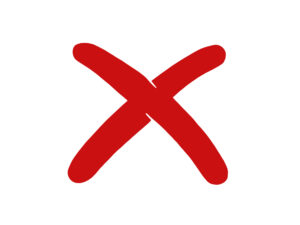Is Go-Cat a sustainable brand of cat food?
Go-Cat is a Nestlé-owned cat food brand. The brand scored poorly in our Ethical Cat and Dog Food Ratings Table. Go-Cat is currently not eligible to be granted Ethical Accreditation due to not meeting our Ethical Benchmark, and therefore cannot be ethically certified by The Good Shopping Guide.
Despite this, we do hope we will see a progression in this company, and that Go-Cat will be eligible for Ethical Accreditation in the future.
What is Go-Cat and what does it do?
Go-Cat is a range of quality cat foods from Purina. It has been specially developed by Purina vets and nutritionists in line with the latest scientific developments. All of the foods contain a balance of protein and taurine to help cats to have healthy hearts.
Where does Go-Cat score well as a brand ethically?
Go-Cat is not yet Ethically Accredited. The brand scores promisingly in areas in categories such as an Environmental Report, availability of Organic products, and stance on Nuclear industries and Armaments. The company that owns Go-Cat, Nestlé, does not profit from or invest in Nuclear power or Fossil Fuels.
How can Go-Cat improve its Ethical Rating?
In order to improve its Ethical Rating, Go-Cat needs to consider taking action on areas of ethical assessment such as Animal Welfare, Irresponsible Marketing, Genetic Modification, etc.
Go-Cat’s parent company Nestlé has been criticised for many things including Consumer Reports’ testing shows concerning levels of arsenic, cadmium, and lead in many popular baby and toddler foods, including Earth’s Best from Hain Celestial and Gerber from Nestlé. A team at Consumer Reports analyzed 50 nationally distributed foods marketed for babies and toddlers in search of cadmium, lead, mercury, and inorganic arsenic. Products tested included cereals, packaged fruits and vegetables, packaged entrees, and packaged snacks such as cookies, crackers, crunches, puffs, snack bars, wafers, and biscuits. Every single one showed measurable levels of either cadmium, inorganic arsenic, or lead. Furthermore, 68 % had “worrisome” levels of at least one heavy metal, and 15 of the products could pose potential health risks to children eating one serving or less per day on a regular basis.
Ethical performance in category
GSG score
GSG category benchmark
Ethical Rating
Environment
-
Environmental Report
Good
-
Genetic Modification
Poor
-
Organic
Poor
-
Nuclear Power
Good
-
Fossil Fuels
Good
Animal
-
Animal Welfare
Poor
-
Vegetarian/Vegan Verified
N/A
People
-
Armaments
Good
-
Political Donations
Poor
Other
-
Ethical Accreditation
Poor
-
Public Record Criticisms
Poor
-
Public Record Criticisms+
Poor
= GSG Top Rating = GSG Middle Rating = GSG Bottom Rating
